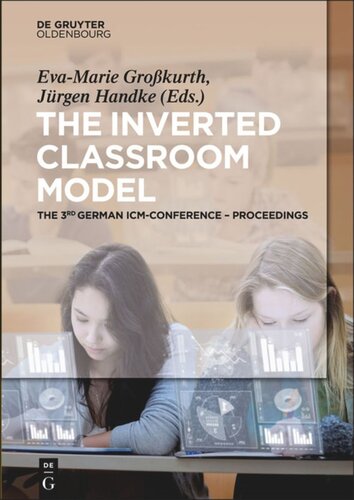

Most ebook files are in PDF format, so you can easily read them using various software such as Foxit Reader or directly on the Google Chrome browser.
Some ebook files are released by publishers in other formats such as .awz, .mobi, .epub, .fb2, etc. You may need to install specific software to read these formats on mobile/PC, such as Calibre.
Please read the tutorial at this link: https://ebookbell.com/faq
We offer FREE conversion to the popular formats you request; however, this may take some time. Therefore, right after payment, please email us, and we will try to provide the service as quickly as possible.
For some exceptional file formats or broken links (if any), please refrain from opening any disputes. Instead, email us first, and we will try to assist within a maximum of 6 hours.
EbookBell Team

4.8
34 reviewsOnly two years after its first run, the Inverted Classroom Conference has become a familiar event at Marburg University. Most conference participants not only knew about this digital teaching and learning scenario but were experienced users and developers. While during its predecessors most participants wanted to familiarize themselves with the central components of the Inverted Classroom Model, the focus of the 3rd German Inverted Classroom Conference in 2014, to which this conference volume is dedicated, was not only a discussion of variants of the model but also, for the first time, the inclusion of long-term evaluations and aspects of student behavior.
This shift of emphasis is reflected in the contributions to this volume. Even though all central aspects of the ICM - content production and delivery, testing, and the in-class phase - are still addressed, we can now find recommendations concerning digital material acquisition, in-class tuition, the role of student tutors as well as first long-term studies about ICM effects.
In general then, the focus was much wider than that of the first two ICM-conferences: from a new and originally non-familiar teaching and learning scenario to more general aspects of digitization of teaching and learning in the 21st century.